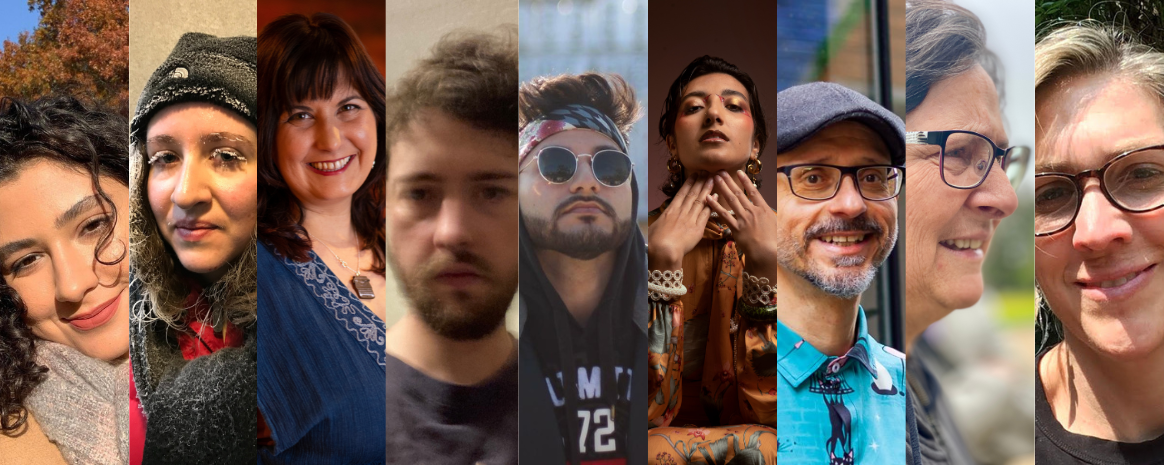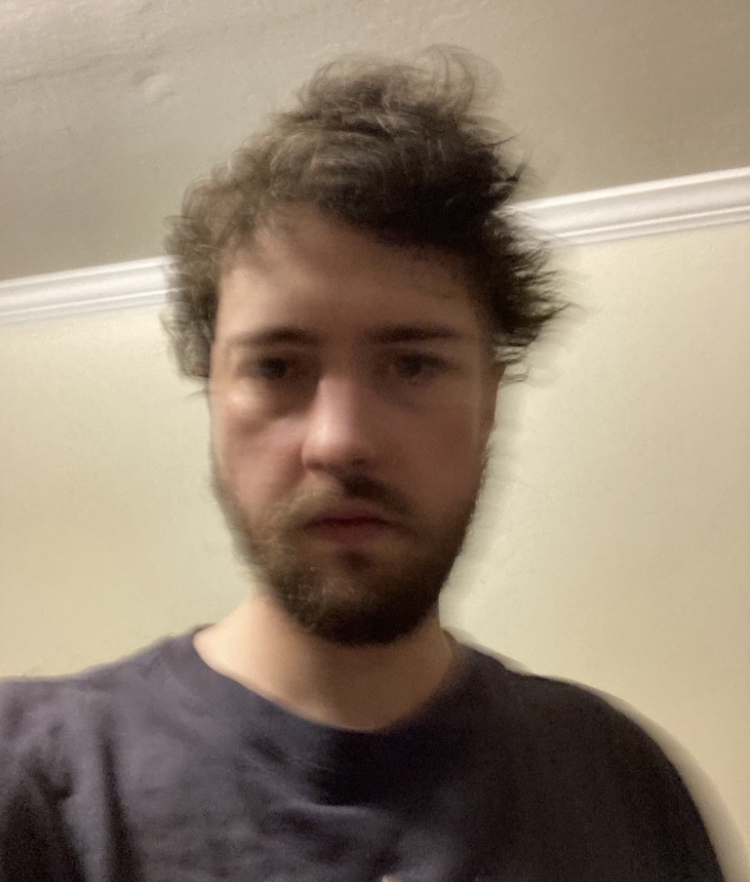Dear Mahsa by Ava Fathi
Of Eccentric Orbits by Jennifer Houle
In Which Alberta Plays the Old West (Not So Much in the Way That Angela Hewitt Plays Bach as in the Way That a Dog Plays Dead) by Joseph Kidney
The Bottle Depot by Tonya Lailey
Bad Mango by Fareh Malik
BAMBI’S THERAPEUTIC GUIDE TO RELEASE by Cassandra Myers
Guide to the Bones of the Foot by Elizabeth Philips
Part-Time Magic by Jade Riordan
The Opposite of Combustion by Richard-Yves Sitoski

In Which Alberta Plays the Old West (Not So Much in the Way That Angela Hewitt Plays Bach as in the Way That a Dog Plays Dead)
by Joseph Kidney
Bios

Ava Fathi
Ava Fathi is an Iranian-Canadian writer from Toronto. She recently completed her Master’s in English Literature with a specialization in Creative Writing from the University of Toronto. Her work, exploring the diasporic experience and imaginary, has been published in Room, The Malahat Review, and Grain, among others. [provided for the poem “Dear Mahsa”]

Jennifer Houle
Jennifer Houle is the author of two award-winning poetry collections, The Back Channels and Virga (Signature Editions). A life-long Maritimer, she lives in Hanwell, NB, and has a chapbook forthcoming from Emergency Flashmob Press. [provided for the poem “Of Eccentric Orbits”]

Joseph Kidney
Joseph Kidney won the Short Grain Contest from Grain, and The Young Buck Poetry Prize (now the Foster Poetry Prize) from CV2, and was nominated for a Canadian National Magazine Award. His poems appear in Best Canadian Poetry 2024 and elsewhere. His chapbook Terra Firma, Pharma Sea is available from Anstruther Press. [provided for the poem “In Which Alberta Plays the Old West (Not So Much in the Way That Angela Hewitt Plays Bach as in the Way That a Dog Plays Dead)”]

Tonya Lailey
Tonya Lailey writes poems, essays and plays with graphic forms. She lives in Calgary with her two daughters. Her first full-length poetry collection, Farm: Lot 23, is forthcoming this spring from Gaspereau Press. [provided for the poem “The Bottle Depot”]

Fareh Malik
Fareh Malik is an author and artist from the Greater Toronto Area. Originally a spoken word poet, recently he was named the 2023 winner of the Austin Clarke Prize in Literary Excellence, the 2022 PEN Canada New Voices Award winner, and his book Streams that Lead Somewhere was the winner of the Hamilton Literary Award for Poetry, and longlisted for the Gerald Lampert Memorial Award. [provided for the poem “Bad Mango”]

Cassandra Myers

Elizabeth Philips
Elizabeth Philips is the author of four poetry collections, most recently Torch River. Her first novel, The Afterlife of Birds (Freehand Books, 2015), won the City of Saskatoon Book Award and was a finalist for the Amazon.ca First Novel Award. She lives in Saskatoon, where she is Acquisitions Editor for Thistledown Press. [provided for the poem “Guide to the Bones of the Foot”]

Jade Riordan
Jade Riordan is a poet from the land of the midnight sun. Her poetry has appeared in CV2, The Fiddlehead, Grain, The Malahat Review, Prairie Fire, Room, and elsewhere. When not writing, she can be found daydreaming about fireflies as living compasses. [provided for the poem “Part-Time Magic”]

Richard-Yves Sitoski
Richard-Yves Sitoski (he/him) is a songwriter, performance poet and the former Poet Laureate of Owen Sound, ON, on the territory of the Saugeen Ojibway Nation. His work has appeared in Arc, Prairie Fire, Train, The Fiddlehead and elsewhere. His latest full-length collection is Wait, What? (Wet Ink Books, 2023). [provided for the poem “The Opposite of Combustion”]







